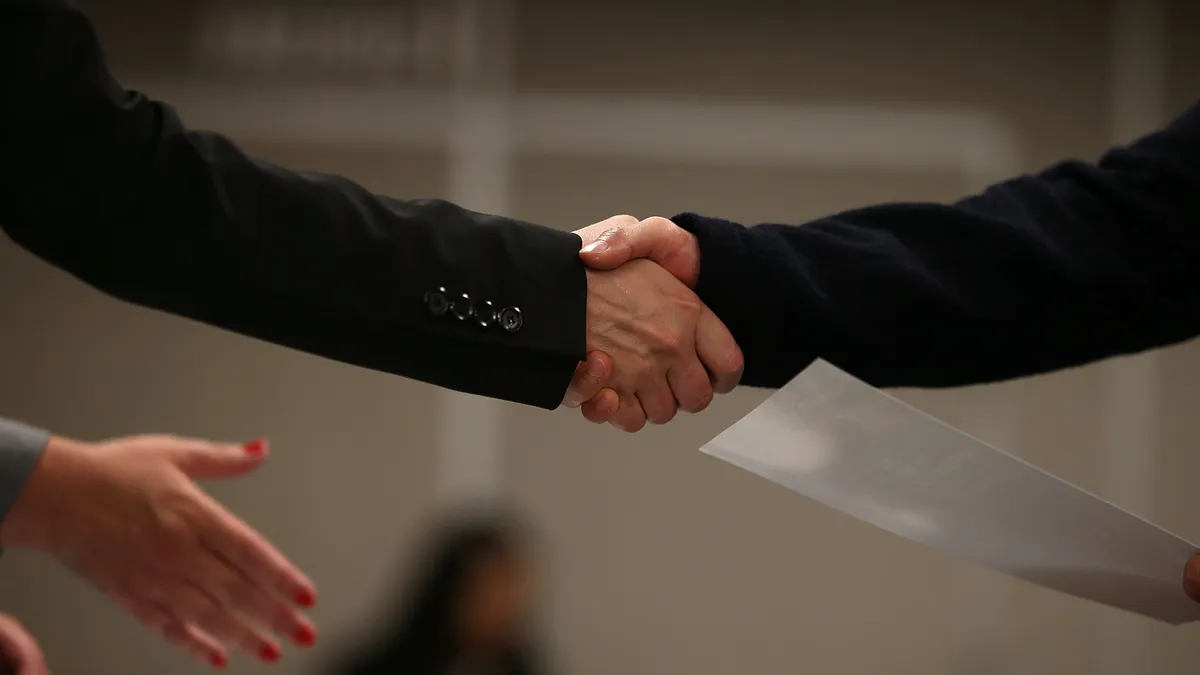The CFOs of online home-sharing marketplace Airbnb and e-commerce retailer Etsy didn't have the typical educations that traditional CFOs tend to have. But they didn't let that stop them.
Dave Stephenson of Airbnb and Rachel Glaser of Etsy recently were guest speakers in Airbase’s Path to Becoming a CFO Series. They shared both their colorful backgrounds along with peaks and valleys endured over the years.
Psychology and engineering to finance
“Studying psychology, I focused a lot on organizational behavior and I loved the psychology of business,” said Glaser on the Nov. 9 webcast.
Glaser graduated from UC Berkeley in 1983 with a degree in psychology and credits her first employer, The Walt Disney Company, for a lot of her education in the business world.
Though Glaser, who earned her MBA at the University of Southern California’s Marshall School of Business according to her LinkedIn profile, went to business school directly after earning her bachelor’s degree, she credits the “geniuses” at Disney for her growth as a business executive
When Glaser was hired on to Walt Disney as a financial analyst in 1986, she “was going more to the company, not to the finance job. I liked the brand and I thought I could really get a good education at a company that had such a wealth of talent to learn from,” she said on the webcast.
Despite filling many financial executive roles following Disney at Yahoo and now Etsy, Glaser still credits much of her success to the people around her. “It was not until I took on my first CFO role that I quickly learned I had to be well versed on a breadth of things. Being that I am not a CPA, having a strong team and especially a chief accounting officer was key for me,” she said.
Similar to Glaser, Stephenson too had a somewhat non-traditional career trajectory. He was born and raised in western Montana, where his exposure to business executives ranged from those at lumber mills to mini mart gas stations, he said in the July Airbase webcast.
“I actually started my career as an industrial engineer, and the best advice I was given was to go get some great training and work for the best company that I possibly could,” said Stephenson.
The finance leader — who graduated from Montana State University in 1990 with a degree in industrial and management engineering — began his career at Procter & Gamble as an engineering manager.
“My very first job was running a manufacturing line of 30 people putting toothpaste in toothpaste tubes,” said Stephenson. Although he did not attend an Ivy league school or anything like that caliber, it was at Procter & Gamble where he felt he got that “Ivy league level of education,” he said. “They supported me in getting my MBA and I learned a great deal.”
Lessons learned
Although both finance heads are at the helm of successful public companies, both have had their fair share of humbling lessons learned. For Glaser, it was transitioning from her role at Walt Disney to Yahoo — two companies who had very different cultures.
The finance chief went from focusing on consumer products at Walt Disney to financial operations when she joined Yahoo in 2005.
Coming from mostly a financial planning and analysis background with Disney, Yahoo was the first place that Glaser got a “front row seat to the theater of earnings calls,” she said.
Jeff Epstein, who hosted the webcast, and is the former CFO of Oracle said that he “sometimes found at certain organizations I would say ‘jump’ and everyone would say ‘how high?’ and at other places I would say ‘jump’ and everyone would say “why would I jump?’”
Glaser agreed that this anecdote was the perfect example of the differences in leadership styles needed at different organizations.
One of Stephenson’s biggest lesson learned was not too long ago at the start of the COVID-19 pandemic, he recalled on the webcast.
“We had lost 80% of our business in two weeks after Mar. 9, 2020,” he said. First schools started to close and then travel followed.
What made things especially difficult for the CFO was that Airbnb was a two-sided marketplace.
“We had guests who had made deposits for future stays that were canceled and they thought those deposits were their rightful money, but the hosts who were anticipating people to come thought the same thing,” said Stephenson.
The easiest thing to do as a CFO, according to Stephenson, is to say no. “It’s expected for the finance chief to be the pessimist, the naysayer, and there was a lot of debate and discussion about the risk and the benefits of giving this money back to our users and ultimately, this was a challenging CFO decision, but it came down to the loyalty of our users,” he said.






















